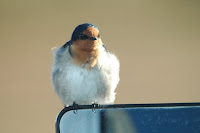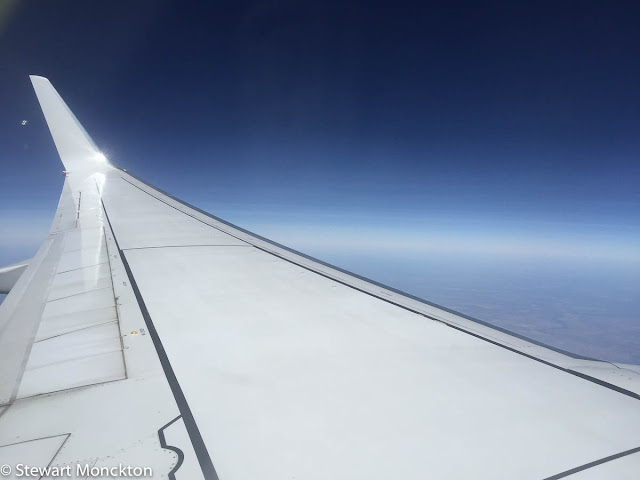At the waters edge (part 1)

I was back at Point Lonsdale, west of Melbourne, on the Bellarine Peninsula, my normal summer haunt. I have probably spent more nights in this house than anywhere that I don’t actually call home. I was beginning to wonder what I would see that was new, or at least different. There had been rain, not as much as further north where floods had washed away homes, destroyed towns and lives in a way that has not been seen before, but there was enough to alter plans. A low pressure sitting to the south of Victoria pulled warm, moist tropical air from monsoonal far north Australia, and it rained and rained and rained. Warm rain, steady rain, unfamiliar rain. In such weather you just get on with it because you are on holiday.

(I was aware at the time and remain painfully aware that the rain I am talking about was robbing people of all they had - and I had the same unreal feeling as during the recent bush fires - “How can this be?” “How can this be happening here?” To complain of spoiled beach days or altered plans would be to show a degree of insensitivity way, way below crassness. So, with that in mind, I will continue).
When it stopped raining the light was soft and full in the clear air, and in the evenings it took on a golden glow. Cloud and sun produced rainbows and ships sailed in search of the pot of gold.

Everything seemed to have responded to the rain that had fallen over the last months. Paddocks that have been dust bowls and dams that have always been dry shone with life. When it stopped raining there were more dragonflies than I ever remember seeing before. In the rain there were none. Standing on the beach looking out to sea, small dots would turn into dragonflies as they shot across the water, some flew in tandem, most shot past without being identified. In the garden crisp Painted Ladies flash from flower to flower, and tiny blue butterflies flick up from hiding places in the grass. Painted Ladies seem to have followed me everywhere this summer - and my plan to start being able to name these insects has progressed, but now stalled.

On the boat ramps fishermen still fish, waterproofed by optimism. They fillet salmon, whiting and wrasse. Birds gather for the scraps flicked from the boats. A juvenile Little Pied Cormorant sits low in the water; with dense bones and heavy feathers this is a bird where flying has been swapped for swimming. In the shallow waters near the jetties and ramps it dives under the water in search of food. It tucks its wings in close and tight and kicks with its feet. Pelicans gather as well. Close up they seem comical and ungainly as they fight for a speck of fish. These birds are here day after day, predictable. As is the huge Sting-Ray that glides around the harbour, also looking for fish.
A strange insect crawls across the fly wire of the door. I had not seen anything like this before. Stick insect? Grasshopper? Neither? It turns out to be a Twig-Mimicking Katydid , a strange creature which feeds on the pollen and nectar of flowers, but rather delightfully does not damage the flowers in the process. So it is a vegetarian and a pacifist! When it is not walking up fly wire or eating pollen it spends its time pretending to be a stick - it lies length ways along a real stick, tucks its long legs by its side and its longer antennae out in front and relies on camouflage. The remarkable spiky extension of its body ends up looking like a broken twig, or a leaf stalk. You have to assume this works really rather well, because it must be expensive to build. You have to wonder at the fine calculations the selective powers of evolution have applied to this animal. The energy and material used to build that spike could produce a lot of eggs.



Later when I went to dump some vegetable scraps in the compost bin I found an abandoned bee’s nest slicked on to the rim of the bin. The bees were long gone, thankfully, but the combs were still in place. That evening I walked into the bathroom and was greeted by a scorpion! Not a large one, but they don’t need to be large to grab your attention. After some deft work with a sheet of paper and a glass I had it in captivity. In did not seem to be all that well, which may not have been a bad thing. After the kids oohed and aahed about it I let it go in the garden. I think it was a Black Rock Scorpion, but the fact that it was a scorpion was good enough for me. It had you think twice about padding barefoot to the bathroom at night. Maybe this place was still capable of a few surprises.


 In the pouring rain I go bird watching and find a Pelican seeming to take a drink. It was stood there with its beak wide open and pointing at the sky - every minute or so it would shake its head from side to side, pause and then point its open gaping beak skyward again. It could have been trying to wash something out of its mouth, but if that was the case, why not use sea water?
In the pouring rain I go bird watching and find a Pelican seeming to take a drink. It was stood there with its beak wide open and pointing at the sky - every minute or so it would shake its head from side to side, pause and then point its open gaping beak skyward again. It could have been trying to wash something out of its mouth, but if that was the case, why not use sea water?White Fronted Chats display called from bush tops and a passing white butterfly came to the end of its life. Striated Heath Wrens - with a cocked tail and a loud voice - also called from the bushes. In between the rain Welcome Swallows flash past and drink from the standing pools of water, they land on car mirrors, windscreen wipers and wire fences. At times the air is full of swallows, and then they disappear for no reason I can discern. Silver Gulls wash in the puddles. Crested Terns, with buoyant, airy wing beats hunt for bait fish and argue amongst themselves. Royal Spoonbills preen in the sunshine between showers. As I leave it starts raining again. It carries on raining.

to be continued .......














Comments
RB
Thanks for the link to this, your other blog.
I can see that I have some good reading ahead of me.
Your throwing the scorpion back outside had me pondering: Would I be that good a conservationist and nature lover?
Not being in a country with poisonous or dangerous creatures ( apart form an adder here and there), I would have been tempted to shorten that scorpion's life.